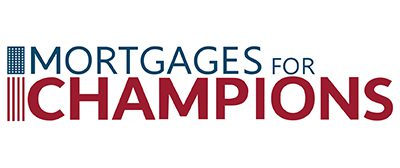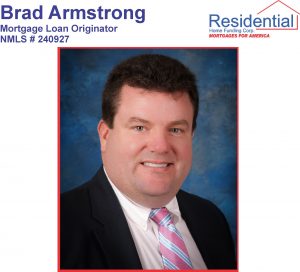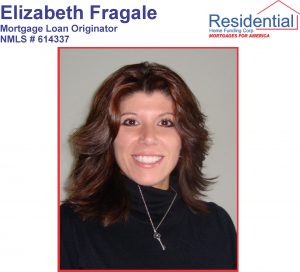The mortgage industry is constantly changing and it is imperative for professionals to continually educate themselves so that they can best serve their clients. David Stein, COO and Partner of Residential Home Funding Corp was interviewed by Kathleen Lynn, a writer at The Record, about the five things to know about mortgages now. This is a great resource for a quick crash course on the industry for anyone looking to take out a home loan.
Five things to know about mortgages now
SUNDAY, OCTOBER 6, 2013
STAFF WRITER
THE RECORD
After riding a swift updraft earlier this year, mortgage rates have steadied at around 4.5 percent for a 30-year fixed loan.
But there’s a good chance they’ll resume their upward path. That’s one of a number of things borrowers need to know now to get the best loan.
“For planning purposes, if I were thinking of getting into the market next spring, I’d be working with numbers in the 5 percent range,” said Keith Gumbinger, vice president of HSH.com, a Riverdale-based publisher of mortgage information. That would be up from around 3.5 percent earlier this year.
The market got some rate relief recently, when the Federal Reserve decided to continue its policy of buying bonds to keep mortgage rates low, in an effort to stimulate the housing market and the economy.
But the Fed has also made it clear that it will taper off such buying at some point, as the economy improves.
So does that mean buyers should speed up their timetables and jump into the market before rates start to rise again?
Not necessarily. For one thing, analysts aren’t predicting a huge increase.
And the mortgage rate is “only one part of the [home-buying] transaction,” Gumbinger said.
For most people, the decision to buy or sell is less influenced by the financial markets, and much more influenced by what’s happening in their lives: a new job, marriage, divorce, or the birth — or departure — of children, said Greg McBride, an analyst with Bankrate.com.
And even if rates start to rise, they are likely to remain affordable, by historic standards.
“Mortgage rates are not, and won’t be for some time, an impediment to well-qualified borrowers,” McBride said.
“If the difference between a 4.5 percent and 5 percent rate on your mortgage is the difference between being able to afford a home or not, you’re stretching yourself too far.”
Given the changing mortgage landscape, here are five things borrowers can do to get the best deal:
Do your homework
The first step is to check your credit report with the three credit reporting agencies.
You can do it for free at annualcreditreport.com. If there are any errors, correct them. Then do what you can to improve your credit rating by paying down your debt.
Avoid borrowing to buy a car or other big-ticket item in the months before you apply for a mortgage — and, for that matter, up to the date you finally close on your new home.
You can check your credit score at myfico.com for $19.95. Anyone with scores below 620 will find it very difficult to qualify for a mortgage; borrowers with scores over 740 qualify for the best rates. It’s a good idea to try to improve your score in the months before you apply for a mortgage, because even a 20-point improvement can make a difference in the rate you can get, according to David Stein, chief operating officer of Residential Home Funding in Parsippany, which has offices in Bergen and Passaic counties.
Be ready to offer up a lot of paperwork to document your income, debts and assets. Regulators have cracked down since the housing boom free-for-all, when unqualified buyers and borrowers got or refinanced mortgages they couldn’t actually afford.
Now, borrowers need to show one month’s worth of pay stubs, two months of bank statements and two years of tax returns, according to Stein. During the housing boom, Stein said, lenders “weren’t looking at anything — now they’re looking at everything.”
Then shop around among several lenders for the best rate.
Get preapproved
Even before you start looking for a house, you should get preapproved for a mortgage. This will make you a stronger buyer, because sellers will know you have the financing in place to move forward.
In addition, getting preapproved for a mortgage amount “sets boundaries around what you can afford. Those boundaries dictate what your price range is,” said McBride.
Choose between rates
The standard loan offers a fixed interest rate for 30 years. Adjustable-rate mortgages (ARMs) offer a fixed rate for, typically, the first five or seven years; after that, the rates can rise every year. In exchange for accepting the risk that interest rates will rise, borrowers get a rate that’s typically about 3/4 percent lower on ARMs. According to the Mortgage Bankers Association, ARMs make up about 7 percent of the current market.
But ARMs make sense only for people who know for sure that they’re going to be in the house for a limited time.
“Forget about adjustable rates altogether unless you have sufficient financial stability that you could absorb a higher monthly payment if your timetable doesn’t pan out,” McBride said.
“For example, you can take a seven-year adjustable rate mortgage and shave 3/4 percent off your rate. But you’ve got to be able to handle a higher monthly payment in Year 8 without financial distress.”
Gumbinger agreed. He said that in any market, ARMs are probably right only for a small percentage of buyers. And in the current interest rate environment, ARMs make even less sense: “There’s really only one direction interest rates are likely to go, and that’s up.”
Decide length of loan
Fifteen-year loans are more popular with refinancing homeowners than they are with first-time home buyers because many buyers can’t afford the higher monthly payments. The reward for those higher payments is that over time, you’ll pay much less in interest by shortening the life of the loan. And 15-year mortgages come with lower rates, typically about 3/4 percent lower.
Sammy Thomas, a consultant living in Ridgewood, wasn’t looking for a 15-year mortgage when he decided to refinance as rates dipped last year. But with rates on 15-year mortgages then hovering around 3 percent, he decided that was the best deal. The shorter loan also meant that he and his wife, Demi, a teacher, could live mortgage-free sooner. That was especially appealing as they plan for their retirement, said Thomas, 58. In fact, they hope to put extra money on the loan each month and have it paid off in 11 or 12 years.
“It reduces a large risk,” Thomas said. “As you go into retirement, other things may arise, health issues and whatnot.”
A homeowner with a $300,000 mortgage will pay $1,520 a month on a 30-year, 4.5 percent mortgage. A 15-year mortgage, at 3.75 percent, would run $2,182 a month. But over the life of the loans, the 15-year borrower would pay $92,700 in interest, while the 30-year borrower would pay $247,220 in interest.
Even if you’re not sure you can afford the higher monthly payments that come with a 15-year loan, you can shorten the life of a 30-year loan yourself by paying extra toward the principal each month, Gumbinger said.
Lock in your rate
Once you’ve found a good rate, consider locking it in, which you can usually do for no cost, or for a fee that is refunded at closing. It’s not worth betting that rates will fall before you close on the house.
“I rarely tell folks to try to time the bottom of the market,” said Gumbinger. “Mortgage rates almost always rise much more quickly than they fall.”
“Don’t try to guess the way rates are moving,” McBride agreed. “I’m not a fan of people rolling the dice for something as significant as what their mortgage payment is.”
– See more at: https://www.northjersey.com/realestate/226631821_Five_things_to_know_about_mortgages_now.html?page=all#sthash.ky10YMlt.dpuf

































